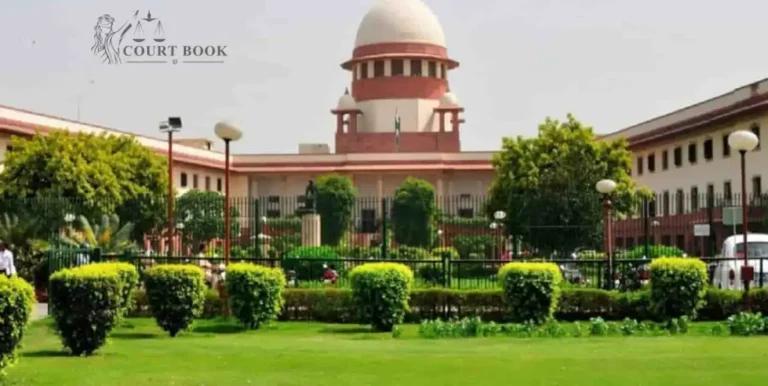The Supreme Court of India recently shed light on the persistent problem of insufficient government jobs in the country, even as India approaches 80 years of independence. The Court voiced concerns over the difficulties faced by countless qualified candidates who remain unemployed due to the shortage of public sector job opportunities.
“Even as we near 80 years of independence, generating enough jobs in the public sector to absorb those eager to enter public service remains an elusive goal. While there is no dearth of eligible candidates in the country waiting in the queue, the quest for public employment is thwarted by a lack of sufficient employment opportunities,” the Court stated.
This observation came while a bench of Justice Dipankar Datta and Justice Manmohan was hearing an appeal related to a case from Bihar. The Supreme Court was reviewing a judgment by the Patna High Court that had struck down a rule enabling hereditary public appointments for the position of 'chaukidars' (village watchmen).
Read Also:- SC Orders CEC to Investigate Encroachments and Forest Law Breaches in Agasthyamalai Ecosystem
Background of the Case
The case revolved around the Bihar Chaukidari Cadre (Amendment) Rules, 2014, specifically Proviso (a) to Rule 5(7). This rule allowed a retiring chaukidar to nominate one of their dependent family members to be appointed in their place.
The Patna High Court found this rule to be in violation of the Indian Constitution, specifically Articles 14 and 16, which guarantee equality before the law and equal opportunity in public employment. Importantly, this rule was struck down even though no party had formally challenged its constitutionality in court.
The Bihar Rajya Dafadar Chaukidar Panchayat (Magadh Division), which was not originally a party to the case, appealed to the Supreme Court. They argued that the High Court had overstepped its powers by declaring the rule unconstitutional without a direct challenge.
However, the Supreme Court rejected this argument.
“The respondent no.7 was seeking relief from the High Court relying on the offending proviso. In a case where the party aggrieved seeks enforcement of a provision of a rule, which is seemingly unconstitutional, would he raise the plea of its unconstitutionality? It would be imprudent for him to do so,” the Court observed.
“The Division Bench found the offending proviso to be so obtrusively unconstitutional that notwithstanding absence of a specific challenge thereto, it proceeded to declare the same as void,” the judgment noted.
The Court made a powerful statement on the responsibility of constitutional courts under Article 226. It emphasized that the role of writ courts is not just to protect the rights of individuals who come to them, but also to safeguard the fundamental rights of others who may be affected by unconstitutional laws or rules.
“It is not only the duty of the writ courts in the country to enforce Fundamental Rights of individuals, who approach them, but it is equally the duty of the writ courts to guard against breach of Fundamental Rights of others by the three organs of the State,” the Court declared.
It further stated that courts have the authority to strike down such rules even on their own motion (suo motu), provided the State is given an opportunity to present its case.
“When it finds its conscience to be pricked in a rare and very exceptional case by the patent unconstitutionality of a subordinate legislation… [the court] may… grant a declaration as to unconstitutionality,” the bench said.
The Court also referred to previous judgments to support its view. In Manjit vs. Union of India (2021) and Chief Personnel Officer, Southern Railways v. A. Nishanth George (2022), similar rules that allowed children of retiring employees to be appointed to government jobs were declared unconstitutional. These were labeled as "backdoor entries" that undermined merit-based public employment.
Considering all the aspects, the Supreme Court dismissed the appeal. It found no fault in the Patna High Court's decision and appreciated the proactive step taken by the High Court to protect constitutional values.
“We do not see any illegality in such an approach,” concluded the bench.
Case Title: BIHAR RAJYA DAFADAR CHAUKIDAR PANCHAYAT (MAGADH DIVISION) VERSUS STATE OF BIHAR AND OTHERS
Appearances:
For Petitioner(s) :Mr. Gopal Sankaranarayanan, Sr. Adv. Mr. Liz Mathew, Sr. Adv. Mr. N.K. Mody, Sr. Adv. Ms. Ishita M Puranik, Adv. Ms. Jigisha Agarwal, Adv. Mr. Prabudhha Singh Gour, Adv. Ms. Mallika Agarwal, Adv. Mr. Madhav Gupta, Adv. Mr. Praveen Swarup, AOR
For Respondent(s) :Mr. Azmat Hayat Amanullah, AOR Ms. Rebecca Mishra, Adv. Mr. Alok Kumar Sinha, Sr. Adv. Mr. Niteen Kumar Sinha, AOR Mr. Maneesh Saxena, Adv. Mr. Dushyant Pratap Singh, Adv. Mr. Saurabh Kumar, Adv.














